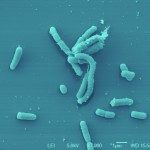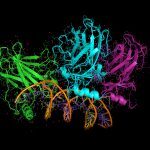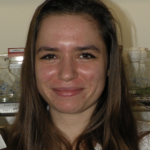Link to Pubmed [PMID] – 40595576
Link to HAL – pasteur-05138169
Link to DOI – 10.1038/s41467-025-60782-6
Nature Communications, 2025, 16 (1), pp.5637. ⟨10.1038/s41467-025-60782-6⟩
Bacteria exhibit remarkable adaptability in response to selective pressures encountered during infection and antibiotic treatment. We characterize four Yersinia enterocolitica clonal isolates from successive bacteremia episodes that evolved within an elderly patient over 14 years. Their common evolution is characterized by a genome size reduction resulting in the loss of about a hundred genes and a so far undescribed deletion in the DNA gyrase gene gyrA conferring quinolone resistance. Third-generation cephalosporin resistance of the last isolate correlates with a truncation of OmpF in synergy with an increased production of BlaA and AmpC β-lactamases. A strong proteome remodeling of the isolates reveals a perturbed stringent response, as well as impaired metabolism which substantiate their severe growth defects in vitro, accounting for antibiotics tolerance and possibly therapeutic failure. This study documents previously unreported genetic and phenotypic changes associated with in-host adaptation of a pathogenic Yersinia species under antibiotic pressure.

















